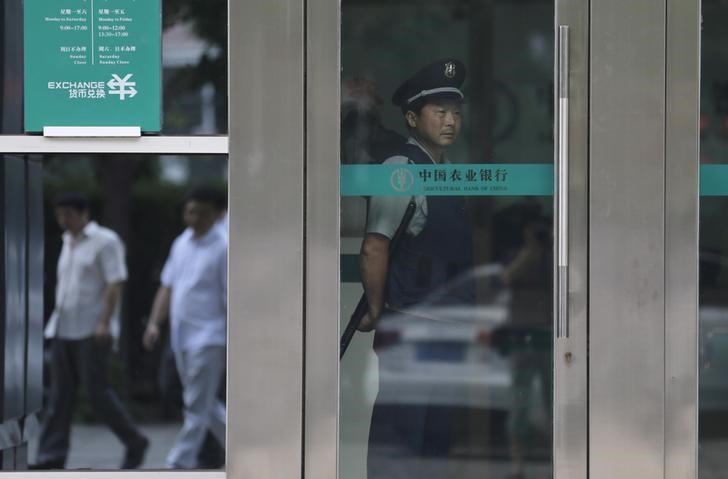(Bloomberg) -- China’s biggest state-owned banks lowered rates on some deposits of consumers in response to the government’s call for help in backstopping the world’s second-largest economy.
Industrial & Commercial Bank of China (OTC:IDCBY) Ltd., China Construction Bank (OTC:CICHF) Corp., Agricultural Bank of China (OTC:ACGBF) Ltd. and Bank of Communications Co. cut two-year, three-year and five-year rates on certificates of deposits and other types by 10 basis points. After the reduction, the two-year CD rate stands at 2.6%.
Chinese authorities earlier this month urged banks to reduce premiums offered to savers over the benchmark deposit rate by 10 basis points across all tenors. While not mandatory, lenders that follow the request will have their scores boosted when the People’s Bank of China does its quarterly macroprudential assessment, people familiar have said.
China’s economic outlook has deteriorated in recent weeks amid Covid restrictions across most of its major urban areas and a now month-long lockdown in Shanghai, its business hub. Economists estimate growth to slow to 5% in 2022, below the government’s target of about 5.5%.
The move will lower funding costs at banks as policy makers again called for the financial industry to help millions of businesses struggling amid lockdowns aimed at curtailing the highly-infectious Omicron variant.
The PBOC has refrained from cutting rates on one-year policy loans that it extends to commercial banks, disappointing analysts who had expected a reduction. By reducing how much they pay for deposits, banks would be able to charge less for loans, especially to smaller businesses, while keeping their margins unchanged.
China’s largest banks can pay up to 50 basis points above the benchmark rates for time deposits, while smaller banks pay 75 basis points more.
China’s commercial banks have had some leeway in setting their own rates since the central bank scrapped direct control in 2005. The PBOC, however, maintains substantial sway by setting a ceiling and floor for rates through the interest rate self-disciplinary body.
The latest move may further hit Chinese households as they were battling shrinking wealth amid slump in stock markets, real estate and other wealth management products.
©2022 Bloomberg L.P.
